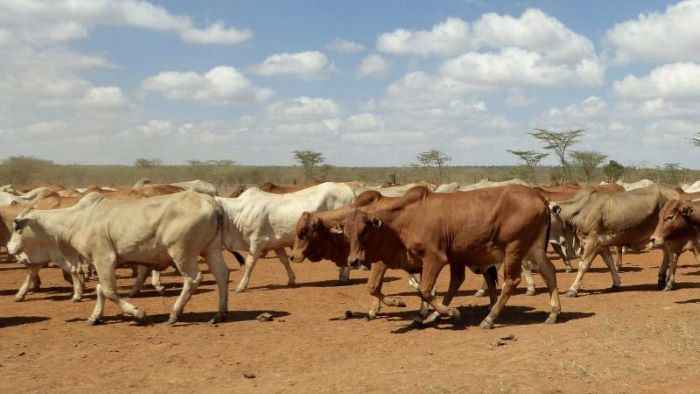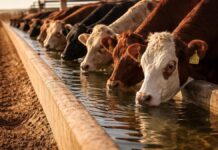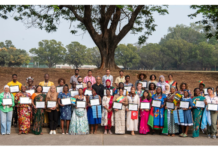Drought-stricken Kenyan livestock farmers are set to receive US $2.88m from the government under the Kenya Livestock Insurance Programme (KLIP). As such, a cumulative total of 15, 000 households will benefit from this payout that will be paid immediately and would help the farmers to get feeds for their livestock.
Principal Secretary (PS) for Agriculture Livestock, Fisheries and Irrigation, Harry Kimutai who declared the payouts to the respective farmers, reiterated the Government’s commitment towards provision of agricultural insurance to severely affected livestock farmers.
Kimutai explained that pastoralists in eight counties of Marsabit, Turkana, Wajir, Isiolo, Mandera, Tana River, Garissa and Samburu will benefit from the pay-out. These are the areas, which are severely affected by the ongoing drought.
Kimutai also urged the county governments in drought stricken areas to also play a role in drought mitigation for it’s a collective responsibility between the national government and county government.
Kimutai further explained that the insurance pay out was to protect farmers from the effects of the drought and the programme is subsidised to suit the farmer. A farmer pays US $24.12 (Ksh.2, 500) for a cattle per year. According to Mr. Kimutai, the insurance pay-out is intended to provide resources for the purchase of animal feeds to cushion them against severe starvation and possible deaths.
Kimutai said the program has protected 90, 000 cattle per year and this year, the government has paid US $3.76m, bringing the total pay out to US $6.81m since its inception.
KLIP is a satellite-based index insurance product, whose aim is to cushion smallholder pastoralists against drought-related loss of their key productive asset, livestock.
According to Kimutai, KLIP was launched in 2014 as a pilot program in Wajir and Turkana counties where 5, 000 households were covered, with over 25, 000 Tropical Livestock Units (TLU) covered across the two counties (1 TLU is equivalent to 1 cow).
The PS said that over the last four years, KLIP has expanded to cover six additional counties, bringing the total number of households under cover to 18, 000 and the TLUs covered to over 70, 000 livestock.








